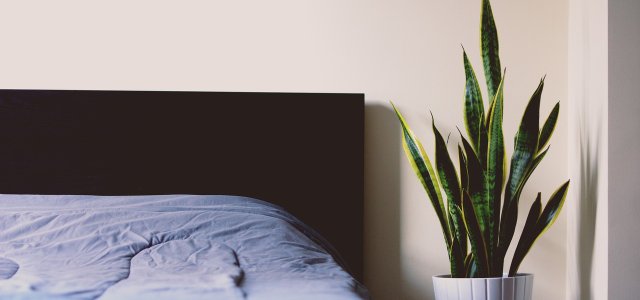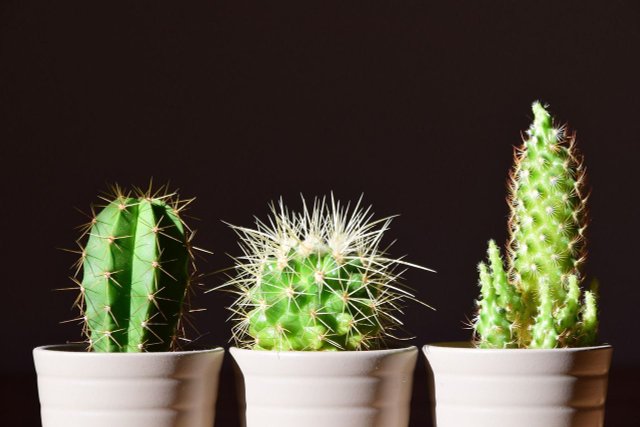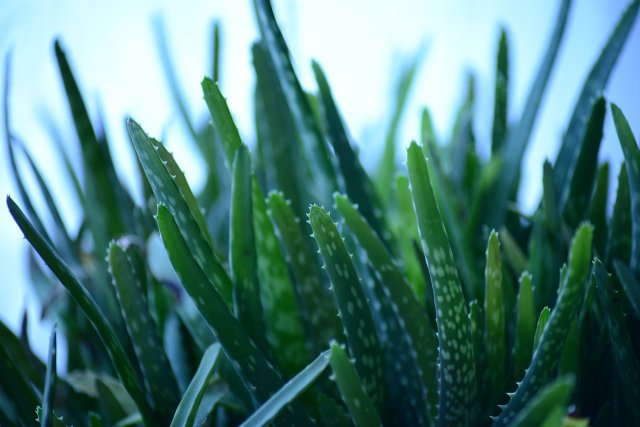
Plants in the bedroom can promote healthy sleep – or inhibit it. We show you which plants are recommended and which are not.
Plants filter pollutants, produce oxygen and increase humidity. As a result, they improve the air quality in your bedroom and can promote restful sleep. However, this is not true for all plants – some can have the opposite effect. We’ll introduce you to four sleep-promoting houseplants and also address bedroom plants that can interfere with your sleep.
Contents
cacti: low-maintenance exotics for a good night’s sleep

Cactus species absorb carbon dioxide and release oxygen at night. In addition, these plants give your bedroom an exotic flair. A sunny window spot is best – so the plants get enough light. Otherwise, cacti require very little care and rarely need watering.
bow hemp – the classic houseplant in the bedroom
Sansevieria – also called bow hemp or mother-in-law’s tongue – is a popular houseplant that is very easy to care for. With its help, you can improve the air in the room, as it filters pollutants from the air and also releases oxygen at night. Thus, bow hemp is an excellent plant for the bedroom.
You rarely need to water Sansevieria, as too much moisture and especially waterlogging do it no good. A semi-shaded to slightly sunny spot during the day is ideal.
aloe vera as a bedroom plant

Aloe vera is also suitable as a plant for your bedroom, because, like the bow hemp, it also produces oxygen at night, filters pollutants and thus increases the air quality.
In addition, you can extract its aloe vera gel and use it especially for skin care. The plant is very easy to care for – plus, you can grow aloe vera yourself.
ivy – also possible as a plant in the bedroom!
Common ivy is familiar to most people from densely overgrown house walls and walls, but it can be kept well as a houseplant. It filters large amounts of pollutants and mold spores, and since it grows well in shady places, it is especially suitable for dark bedrooms. It should be watered regularly; but only when the top layer of substrate or soil is dry – ivy does not tolerate waterlogging well.
Note, however, that ivy can cause irritation if it comes into contact with the skin (more information: Is ivy poisonous? You should know). Therefore, place it out of reach of children or pets.
Some plants are not suitable for the bedroom
To make sure you’re improving your sleep with plants and not impairing it, there are a few factors you should consider:
- Beware of plants with strong fragrances or flowers: they can cause headaches and affect your sleep.
- As a matter of principle, you should not keep plants in the apartment to which you are allergic. This is especially true for the bedroom. If you wake up in the morning with a headache and itchy eyes, it’s not necessarily because of the bedroom plants: it could be a house dust allergy.
- In dry rooms, plants can improve the indoor climate by increasing humidity. If you’re struggling with excessive humidity or even mold in your home, don’t keep too many plants to avoid making the problem worse. And whether you have plants or not, you should air your home regularly and properly to prevent mold.
- Many plants emit some carbon dioxide at night because photosynthesis is not possible without light. The emission is so low that you don’t have to worry about it – but make sure that there are not too many plants in the bedroom. Or prefer bow hemp and aloe vera, which produce oxygen at night.

